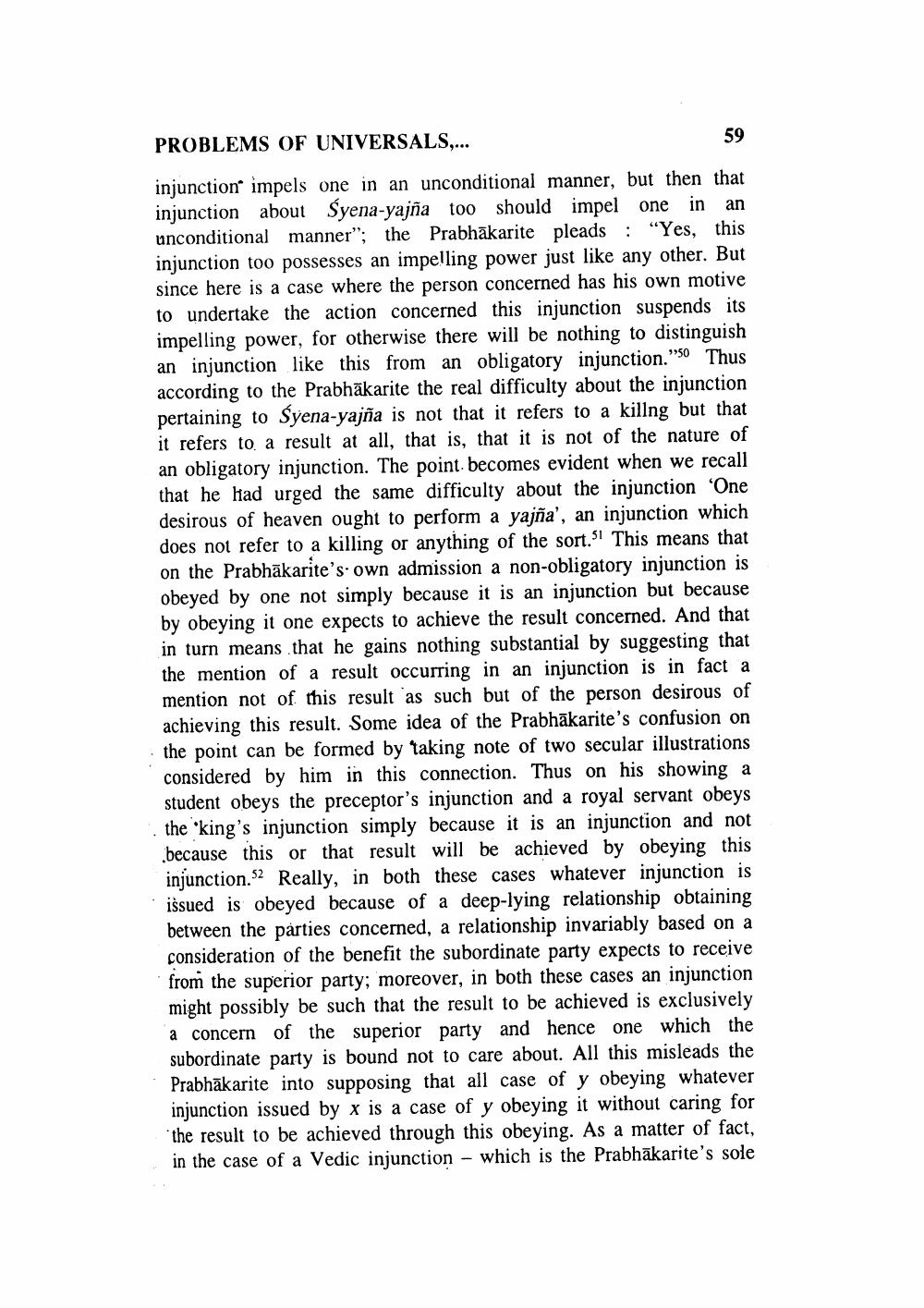________________
PROBLEMS OF UNIVERSALS,...
59
injunction impels one in an unconditional manner, but then that injunction about Syena-yajña too should impel one in an unconditional manner"; the Prabhākarite pleads: "Yes, this injunction too possesses an impelling power just like any other. But since here is a case where the person concerned has his own motive to undertake the action concerned this injunction suspends its impelling power, for otherwise there will be nothing to distinguish an injunction like this from an obligatory injunction."50 Thus according to the Prabhākarite the real difficulty about the injunction pertaining to Syena-yajña is not that it refers to a killng but that it refers to a result at all, that is, that it is not of the nature of an obligatory injunction. The point becomes evident when we recall that he had urged the same difficulty about the injunction 'One desirous of heaven ought to perform a yajña', an injunction which does not refer to a killing or anything of the sort. This means that on the Prabhākarite's own admission a non-obligatory injunction is obeyed by one not simply because it is an injunction but because by obeying it one expects to achieve the result concerned. And that in turn means that he gains nothing substantial by suggesting that the mention of a result occurring in an injunction is in fact a mention not of this result as such but of the person desirous of achieving this result. Some idea of the Prabhākarite's confusion on the point can be formed by taking note of two secular illustrations considered by him in this connection. Thus on his showing a student obeys the preceptor's injunction and a royal servant obeys the king's injunction simply because it is an injunction and not because this or that result will be achieved by obeying this injunction.S2 Really, in both these cases whatever injunction is issued is obeyed because of a deep-lying relationship obtaining between the parties concerned, a relationship invariably based on a consideration of the benefit the subordinate party expects to receive from the superior party; moreover, in both these cases an injunction might possibly be such that the result to be achieved is exclusively a concern of the superior party and hence one which the subordinate party is bound not to care about. All this misleads the Prabhākarite into supposing that all case of y obeying whatever injunction issued by x is a case of y obeying it without caring for the result to be achieved through this obeying. As a matter of fact, in the case of a Vedic injunction - which is the Prabhākarite's sole




